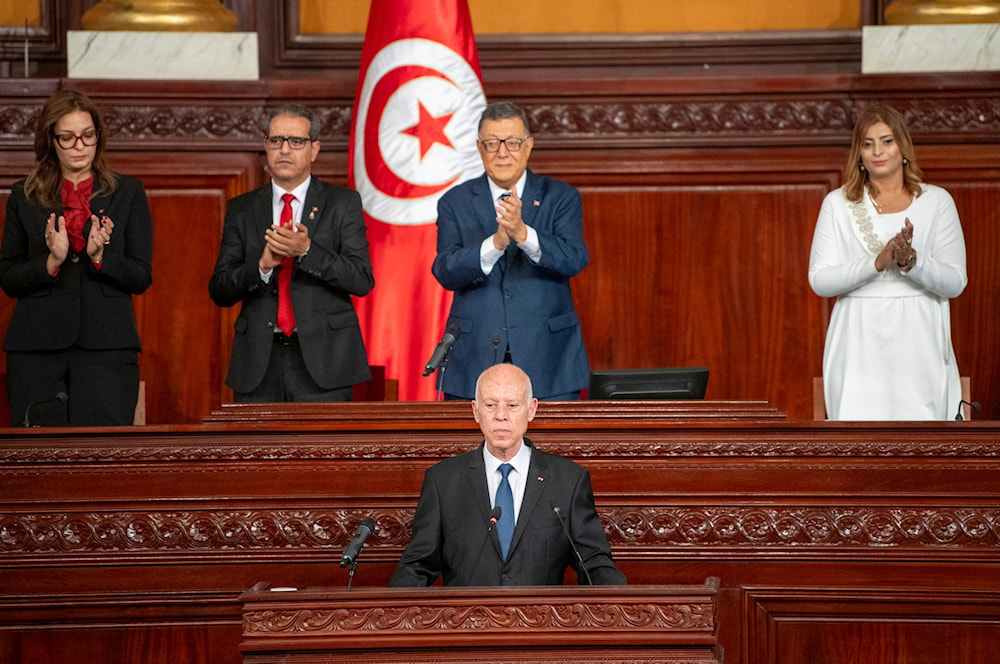Tunisian president dismisses finance minister amid economic struggles
Khaldi, the newly appointed finance minister, previously led a national commission responsible for recovering public funds embezzled before the 2011 uprising that ousted longtime leader Zine El Abidine Ben Ali.
-

In this photo provided by the Tunisian Presidency, Tunisia's President Kais Saied is applauded after taking oath on Monday, October 21, 2024, in Tunis following his re-election. (Tunisian Presidency via AP)
Tunisian President Kais Saied has dismissed Finance Minister Sihem Boughdiri Nemsia and appointed Michket Slama Khaldi to replace her, the presidency announced Wednesday on Facebook. A post on the platform showed Khaldi being sworn into office by Saied, though no official explanation was initially provided for the decision.
The presidency released a video on Thursday showing President Saied conducting unannounced inspections at various government buildings, including the Finance Ministry. The footage clearly captured his frustration as he surveyed the ministries, underscoring his deep dissatisfaction with the country's ongoing administrative and economic challenges.
Khaldi, the newly appointed finance minister, previously led a national commission responsible for recovering public funds embezzled before the 2011 uprising that ousted longtime leader Zine El Abidine Ben Ali.
During his visit to the commission’s headquarters, Saied expressed frustration, stating, "What is happening is not normal."
He emphasized the urgency of the matter, adding, "The Tunisian people need their money."
The Tunisian president lamented the lack of progress, remarking, "We are almost back to square one."
At the Finance Ministry, Saied underscored the responsibility of officials, declaring that "every person in charge must feel invested with a mission, with a mentality... of a fighter on the front line."
Driving the news
Saied, who took office in 2019, initially led Tunisia as the only democracy to emerge from the Arab Spring. However, his consolidation of power in 2021 has sparked accusations of democratic backsliding. While critics argue his actions have eroded freedoms, supporters maintain he has remained committed to tackling corruption and inefficiency.
Despite these efforts, Tunisia continues to grapple with economic hardships. The country of over 12 million people faces sporadic shortages of basic goods like milk, sugar, and flour, alongside persistent high unemployment.
The International Monetary Fund (IMF) projects Tunisia’s economic growth at just 1.6% by 2025. Meanwhile, the nation’s debt has surged to approximately 80% of GDP, compared to 67% before Saied assumed office.
More recently, Tunisia has also experienced a scarcity of domestic gas cylinders, widely used for cooking and heating.
Read more: Tunisian Ennahda's Ghannouchi sentenced to more jail time

 2 Min Read
2 Min Read










